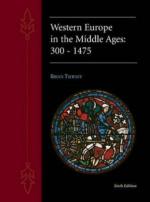|
This section contains 1,568 words (approx. 6 pages at 300 words per page) |

|
Bonaventure and the "Augustinians."
Even as Aristotle's naturalistic philosophy became foundational to university curricula, there was strong resistance to his ideas. Historians, with their penchant for labeling, have called this group "Augustinians," but in truth the term came to identify a whole complex set of teachings, not all the same. The most articulate of the group was Bonaventure (1217–1274), third successor of St. Francis as Minister General of the Friars Minor or, more popularly, the Franciscans. In the prologue to his major theological work, his Commentary on the Sentences, Bonaventure declares that he has no wish to be an innovator, that he wishes only to follow in the footsteps of the great St. Augustine, who not only is a valid guide for the things here below (the extent of Aristotle's competence) but is also master of the...
|
This section contains 1,568 words (approx. 6 pages at 300 words per page) |

|




